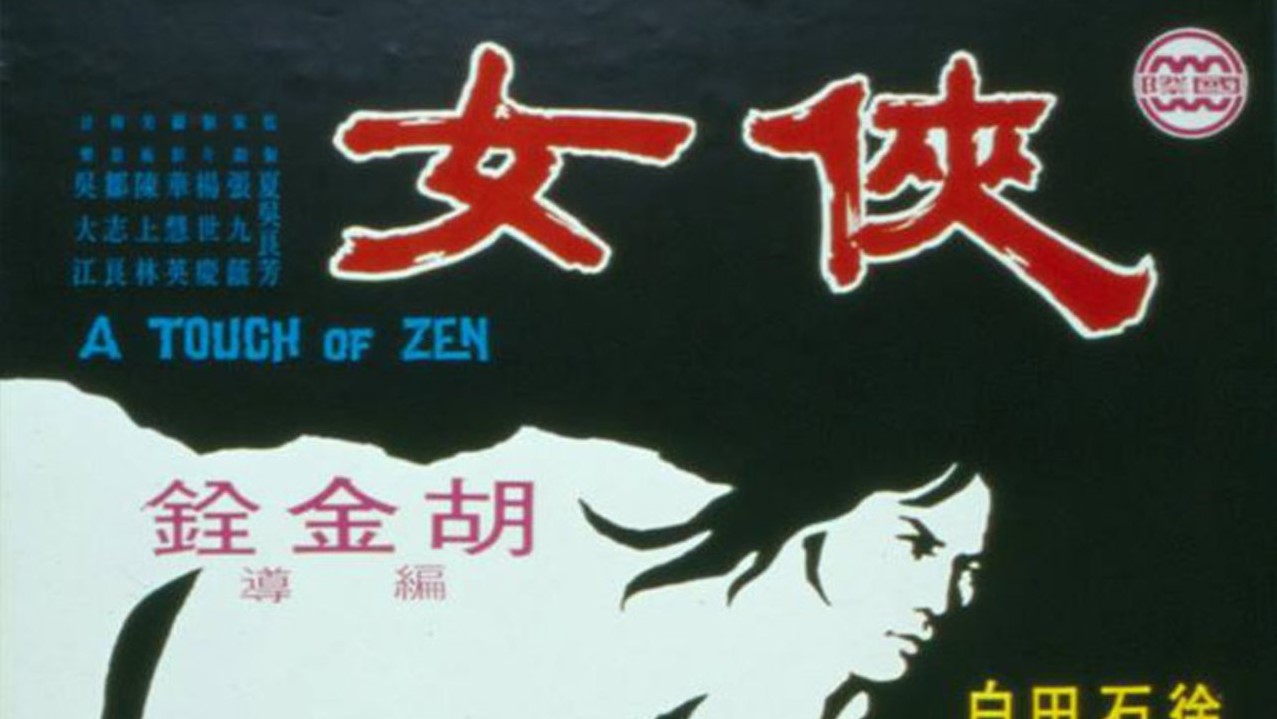A Touch of Zen is the third King Hu film I’ve watched so far, and the second of his films after he left Hong Kong and Shaw Brothers for Taiwan. The first, Dragon Inn, kept some of the framework of the Wuxia Western while using Taiwan’s more diverse scenery for great visual effect. A Touch of Zen, on the other hand, leans more heavily into the Wuxia side.
The film shows this shift right from the jump with the audience perspective character – Gu Sheng-Tsai (Shih Chun). Gu is an artist and scholar of little ambition, satisfied with doing some teaching, scribe work, and portrait painting. Indeed, when we see a normal day in his life at the start of the film, it includes Gu’s mother giving him the “Why don’t you become a doctor?!” speech, except for the government servant exam.
When an investigator for the Eastern Chamber (the Emperor’s secret police – run by eunuchs, and depicted as being evil), Gu falls into the film’s real plot – that the presumably haunted abandoned manor that Gu walks past on the way to his stall is where the actual protagonist of the film, Yang Hui-zhen (Hsu Feng), is holed up. Yang is helped by two fugitive generals Shi Wen-qiao (Bai Ying) and Lu-Ding-an (Xue Han). Yang’s father was a general who was going to blow the whistle on the Eastern Chamber to the Emperor. However, the eunuchs caught wind of this, killed him, and are in the process of wiping out the rest of his family, including Yang.
Gu falls for Yang, and insists on helping her fight back, with Gu serving as her strategist. However, like Jack Burton in Big Trouble in Little China, Gu is absolutely Yang’s sidekick. Indeed, a lot of the narrative is expanded on in a few very extensive flashbacks that are exclusively from Yang’s perspective, as Yang and the Generals provide information to Gu.
A Touch of Zen takes advanages of the differences in terrain between Hong Kong and Taiwan a lot more than his Shaw Brothers fare. In Shaw Brothers films, when the film went on location, it went on the hills around Hong Kong – which often have a lot of short, yellowish grass, and the camera feels incredibly locked off. This gives those films an unintended sense of claustrophobia, in shots that are very clearly supposed to have the opposite effect.
Whether this is because of the lack of the equipment to do crane shots or dolly shots in the terrain, or if it was because if they moved too far in one direction or another you’d end up picking up either the city or the ocean, I can’t say. It feels like various Western movies shooting in the same hills and parks around Los Angeles, like the Vasquez Rocks Natural Area. Eventually, your audience is going to recognize Kirk’s Rocks, no matter what camera angle you use.
Hu, on the other hand, possibly due to the geographical differences between Taiwan and Hong Kong, possibly due to working with a different studio than Shaw Brothers, films his landscapes the way John Ford shot Monument Valley. While the concept is similar – re-using the same location or set of locations, Hu makes everything feel bigger. Consequently, the scope of this movie feels more epic, even though the overall size of the cast of the film is comparable to that of those Shaw Brothers movies.
This is important because, as the title implies, this film is a little more spiritual, while still having some impressive fight scenes. This is carried through the character of Abbot Hui-Yuan (Roy Chiao). He’s almost a Buddha, and basically becomes one over the course of the film. It’s not the focus of the story, but it changes the tone of it, particularly in context of some elements of the film’s climax.In short – Dragon Inn was King Hu stretching his wings as a director after stepping free of the confines and somewhat formulaic elements of Shaw Brothers films. A Touch of Zen is Hu starting to fly.
A Touch of Zen is available on Blu-Ray from Amazon.com. Buying anything through that link helps to support the site.
If you enjoyed this blog post and would like to help to support the site, please consider backing my Patreon. Patreon backers get to access my reviews and Let’s Plays up to a week in advance.
If you want to support the site, but can’t afford to pledge monthly, please consider tossing a few bucks into my Ko-Fi instead.

